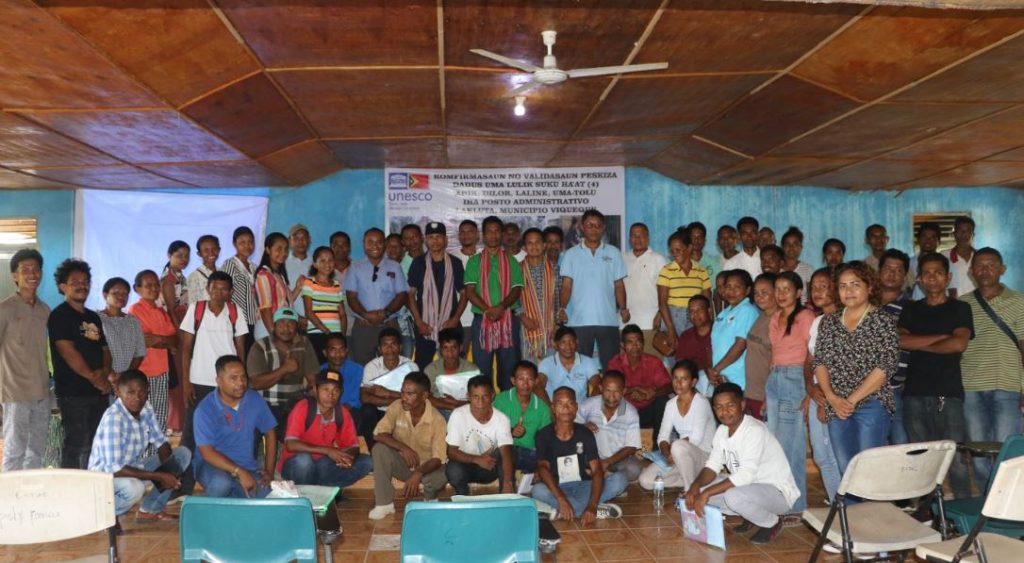The Timor-Leste National Commission for UNESCO (TLNCU) works with the Ministry of Education and the Secretary of State for Arts and Culture to confirm and validate the data of the Uma lulik in four villages (4), Ahik, Dilor, Laline and Uma-Tolu administrative posts in the Municipality of Viqueque.

Through the Culture Division (TLNCU) team, the data were collected for the entire temporary of 82 total (Uma Lulik) in four (4) administrative posts of the Lakluta municipality of Viqueque. The culture team (TLNCU) directly collected the data for the uma lulik in the field through the cooperation of the village chiefs, elderly or traditional leaders, and the community. The data was confirmed to confirm whether the owner of the uma lulik was correct, and the name of the uma lulik was collected as a key as the team took it in the field.
In this activity, Mr. Administrator of the Lakluta post said that the program is not just going to this day but is going through the last 2 years to identify how many uma lulik are in the lakluta post. Today we hear the results of the culture team (TLNCU) to find out the accuracy of the number of uma lisan that have data and how many are not yet in the data. Next year, the couple will complete the data, and we will know how many uma lisan that have used materials such as grass (dut) or modern use as poles using cement. I say thank you very much to the Timor-Leste National Commission for UNESCO (TLNCU) for making a program for the data collected from the uma lulik in Lakluta.
The purpose of the validation of this Uma Lulik data is to carry out confirmation of the data for the validation of the Uma Lulik in the Lakluta administrative post, which has not yet been completed. The presentation was also intended to clarify the accuracy of the village chiefs, sub-village chiefs, elderly or traditional leaders, and community members who participated in completing the data on the validation of Uma-Lulik in the Lautem administrative post.
The activities were attended by the administrators of the Lakluta Post, the police of the Lakluta Post, the village chiefs, and the communities. They were carried out in the parókia Santo Antonio Lakluta and provided with financial support from the Ministry of Education and UNESCO of Paris through the services of the TLNCU and the Secretary of State for Arts and Culture.
